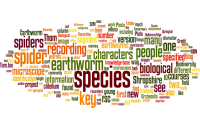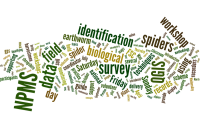Head in the (word) clouds
I have a feeling I'm arriving a little late to the word cloud party. But better late than never; this week I've discovered the wonderful world of wordle (try saying that after a few beers!) and it seems I can't get enough of it.
 For those of you who aren't sure what a word cloud is, this definition seems to cover it: word clouds are pictorial depictions of pieces of text, which 'give greater prominence to words that appear more frequently in the source text' (wordle.com). I've seen them used occasionally at conferences, most often to depict the twitter chat that's going on around the event, showing the subjects which are being discussed most often. But I'd never thought of doing one myself, or really known how to go about creating one.
For those of you who aren't sure what a word cloud is, this definition seems to cover it: word clouds are pictorial depictions of pieces of text, which 'give greater prominence to words that appear more frequently in the source text' (wordle.com). I've seen them used occasionally at conferences, most often to depict the twitter chat that's going on around the event, showing the subjects which are being discussed most often. But I'd never thought of doing one myself, or really known how to go about creating one.
It turns out it's incredibly easy, and there are loads of helpful programs and websites out there which will do all the hard work for you. One which I became aware of this week is tweetstats.com, which I found out about via...you guessed it, Twitter! It was actually tweeted by the NFBR (National Forum for Biological Recorders), who drew particular attention to the word cloud generator - enter your Twitter handle and it generates a word cloud from your tweets, retweets or hashtags (a 'hash cloud', apparently!). Great for seeing what you're actually spending your time tweeting about!!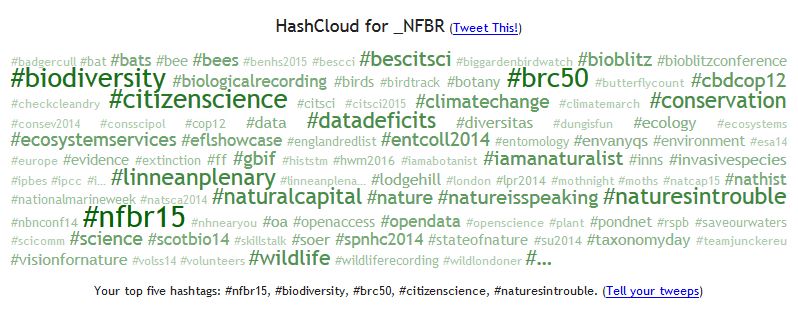
Wordle seems to be the main player in terms of word cloud-generating tools, and it's the one I've been using this week (other word cloud generators are available!). It's free, and very easy to use - you can simply cut and paste text, or give the url of a blog feed or website, and your word cloud is generated. If you don't like the colour scheme and shape that is used, you can cycle through various options until you find one you like the look of. And it seems to automatically filter out highly used incidental words such as 'and' and 'to'.
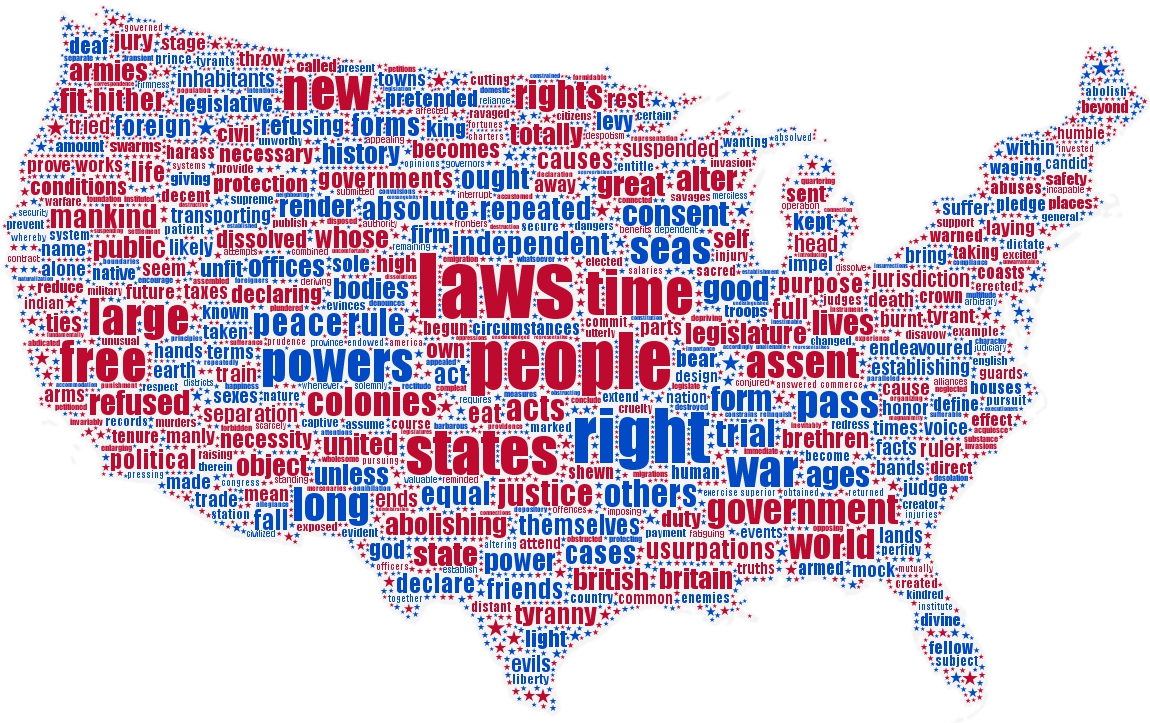 Gimmicky? Maybe, but to me it's actually a great way of visualising what your priorities are; or at least what topics are featuring highly in your written work, whether that's websites, course advertisements, blogs or tweets. For example, I was surprised to see that the phrase 'NPMS' was given the greatest prominence in the Wordle created from the Tom.bio training course page on this website. 'NPMS' stands for National Plant Monitoring Scheme, one of the schemes we're supporting via our partnership with Plantlife. Over the course of last year and this year, we supported quite a few training courses for new volunteer monitors and mentors. But until I made the Wordle, I hadn't quite realised that this adds up to a huge proportion of the total training events we were involved with.
Gimmicky? Maybe, but to me it's actually a great way of visualising what your priorities are; or at least what topics are featuring highly in your written work, whether that's websites, course advertisements, blogs or tweets. For example, I was surprised to see that the phrase 'NPMS' was given the greatest prominence in the Wordle created from the Tom.bio training course page on this website. 'NPMS' stands for National Plant Monitoring Scheme, one of the schemes we're supporting via our partnership with Plantlife. Over the course of last year and this year, we supported quite a few training courses for new volunteer monitors and mentors. But until I made the Wordle, I hadn't quite realised that this adds up to a huge proportion of the total training events we were involved with.
In contrast, I wasn't surprised to see that the words 'biological', 'recording' and 'species' featured highly in the Wordle created from our blog posts, nor that 'earthworms', 'spider' and 'spiders' were also prominent as these are some of the groups we're targeting via our delivery projects; but I was surprised that the word 'springtail' wasn't larger. I clearly need to blog more about springtails!
I too made a Twitter word cloud using tweetstats - here it is. We obviously do a lot of retweeting ('rt') and signposting to websites ('https')! But lots of other good stuff in there too.
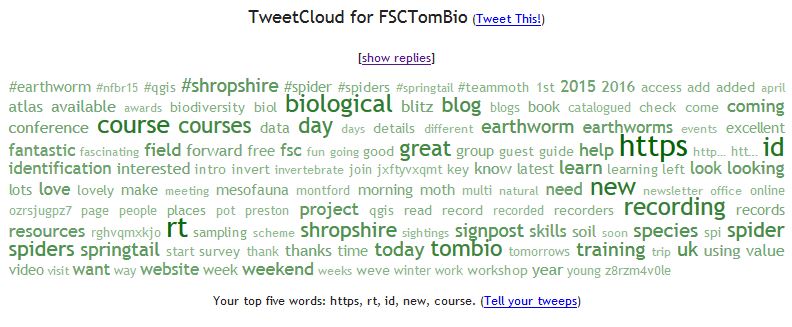 I'll continue to periodically make word clouds relating to our website, social media and general Tom.bio writings - it's a good self-awareness tool (and they look really pretty!). Have a closer look at the ones below, made from the blogs and training course pages on our website.
I'll continue to periodically make word clouds relating to our website, social media and general Tom.bio writings - it's a good self-awareness tool (and they look really pretty!). Have a closer look at the ones below, made from the blogs and training course pages on our website.
- Anonymous's blog
- Log in or register to post comments


